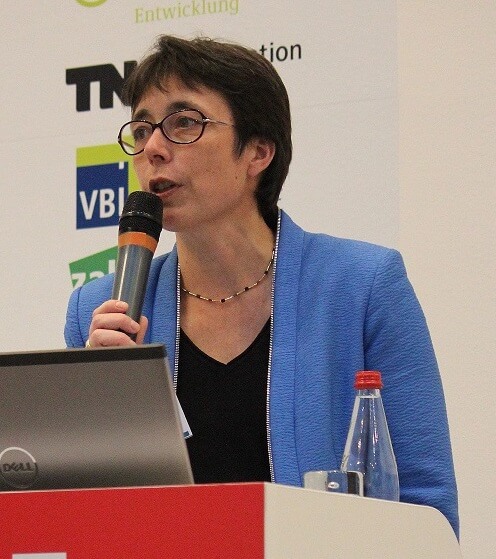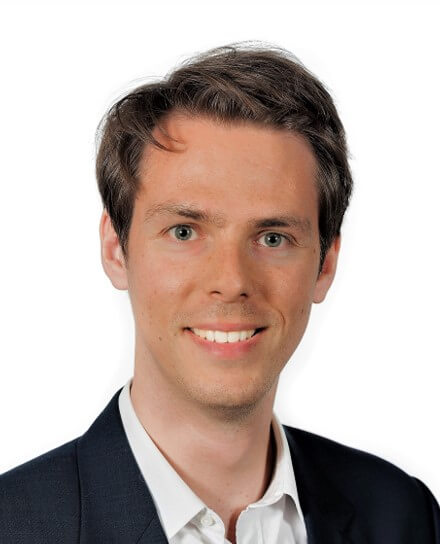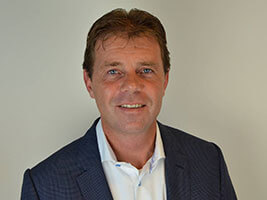Ahead of MIPIM, what is the future of green buildings?
In The News
09 Mar 2018
MIPIM real estate conference brings the most influential players in the international property together in France. With the EU needing to make big gains in the energy efficiency of buildings to meet climate mitigation targets, how can we get there?
Ahead of the conference, we asked experts from the Climate-KIC community “What can we expect to see in the future of green buildings?”
 “At Construction21, we are very confident that the trends observed today on the projects built by early adopters will become the standard of tomorrow. First, we’ll find much more positive energy buildings, thanks to their very low energy consumption and local production of renewable energy, recovery and storage of fatal energy. Second, low carbon buildings made possible with both frugal or very elaborated solutions, based as much as possible on local resources. Third, buildings will be more user-centric, providing health, comfort and well-being.”
“At Construction21, we are very confident that the trends observed today on the projects built by early adopters will become the standard of tomorrow. First, we’ll find much more positive energy buildings, thanks to their very low energy consumption and local production of renewable energy, recovery and storage of fatal energy. Second, low carbon buildings made possible with both frugal or very elaborated solutions, based as much as possible on local resources. Third, buildings will be more user-centric, providing health, comfort and well-being.”
Véronique Pappe, Director, Construction 21 a partner with EIT Climate-KIC on sustainable building
 “Green buildings will be green in terms of construction, operation and deconstruction. More sustainable materials, ideally from renewable resources, will consume less energy in production and will be part of a concerted energy saving concept in operation, including insulation and control of sun irradiation. Smart green composites and hybrid building materials will contribute to high living comfort and low energy consumption and can be easily decomposed and recycled at the end of service time.”
“Green buildings will be green in terms of construction, operation and deconstruction. More sustainable materials, ideally from renewable resources, will consume less energy in production and will be part of a concerted energy saving concept in operation, including insulation and control of sun irradiation. Smart green composites and hybrid building materials will contribute to high living comfort and low energy consumption and can be easily decomposed and recycled at the end of service time.”
Professor Dr Ingo Burgert, ETH Zurich, is developing a timber façade for EIT Climate-KICs Building Technologies Accelerator
 “We can of course expect to see more energy efficiency thanks to an upgraded control process of our heating and cold devices (and more insulation of course). But what we learnt during the development of My-Orchestra is that a huge part of the solution is in the hands of customers, far more than we thought. We don’t need very complicated devices but we need ones with simplified and intuitive interfaces, maybe innovative ones without new screens and open source solutions for interoperability issues on the long term.”
“We can of course expect to see more energy efficiency thanks to an upgraded control process of our heating and cold devices (and more insulation of course). But what we learnt during the development of My-Orchestra is that a huge part of the solution is in the hands of customers, far more than we thought. We don’t need very complicated devices but we need ones with simplified and intuitive interfaces, maybe innovative ones without new screens and open source solutions for interoperability issues on the long term.”
Sébastien Bruyère, My-Orchestra, a former EIT Climate-KIC start-up making home energy use efficient
 “When we think about the future of green buildings, we have in mind brand new buildings that are both comfortable and highly energy efficient, taking into account the environmental criteria by design.
“When we think about the future of green buildings, we have in mind brand new buildings that are both comfortable and highly energy efficient, taking into account the environmental criteria by design.
However, the energy consumption that is user-related in these buildings (computers, air conditioning, etc.) continues to grow and in order to be really green we need measurement and control technologies to be really simple (such as the Smart Impulse technology) for users and building managers. Otherwise the future of green buildings will remain for the happy few.”
Charles Gourio, Co-Founder, Smart Impulse, a former EIT Climate-KIC start up providing solutions to make energy use more efficient
 “All current solutions to make the existing housing stock sustainable require many operations on site with considerable impact on residents and the environment. There is hardly any attention for the recyclability and the different lifetimes of materials put together. So, a lot of materials are wasted during replacement of components.
“All current solutions to make the existing housing stock sustainable require many operations on site with considerable impact on residents and the environment. There is hardly any attention for the recyclability and the different lifetimes of materials put together. So, a lot of materials are wasted during replacement of components.
With 2ndSKIN we work together with suppliers on new product-/service solutions that can be applied easily in multiple housing situations. A challenge is to develop modules of components with the same lifetime that are easily replaceable or upgradable from the outside. The total 2ndSKIN improves the well-being of the residents by offering a comfortable and net zero-energy dwelling without increase of living costs and environment.”
Onno de Wal, Business processes, 2ndSKIN part of Climate-KICs Building Technologies Accelerator
MIPIM, the world’s leading property market, runs from 13-16 March 2018 at the Palais des Festivals, Cannes, France. Brian Kilkelly, Climate-KICs Urban Transitions Business Development Lead will speak on 13 March at 16.30 about a passive & positive approach to energy, asking ‘how will we live in 2030 or 2050?’
Related Goal
Goal 1: Promote retrofit and decentralised energy


 “At Construction21, we are very confident that the trends observed today on the projects built by early adopters will become the standard of tomorrow. First, we’ll find much more positive energy buildings, thanks to their very low energy consumption and local production of renewable energy, recovery and storage of fatal energy. Second, low carbon buildings made possible with both frugal or very elaborated solutions, based as much as possible on local resources. Third, buildings will be more user-centric, providing health, comfort and well-being.”
“At Construction21, we are very confident that the trends observed today on the projects built by early adopters will become the standard of tomorrow. First, we’ll find much more positive energy buildings, thanks to their very low energy consumption and local production of renewable energy, recovery and storage of fatal energy. Second, low carbon buildings made possible with both frugal or very elaborated solutions, based as much as possible on local resources. Third, buildings will be more user-centric, providing health, comfort and well-being.” “Green buildings will be green in terms of construction, operation and deconstruction. More sustainable materials, ideally from renewable resources, will consume less energy in production and will be part of a concerted energy saving concept in operation, including insulation and control of sun irradiation. Smart green composites and hybrid building materials will contribute to high living comfort and low energy consumption and can be easily decomposed and recycled at the end of service time.”
“Green buildings will be green in terms of construction, operation and deconstruction. More sustainable materials, ideally from renewable resources, will consume less energy in production and will be part of a concerted energy saving concept in operation, including insulation and control of sun irradiation. Smart green composites and hybrid building materials will contribute to high living comfort and low energy consumption and can be easily decomposed and recycled at the end of service time.” “We can of course expect to see more energy efficiency thanks to an upgraded control process of our heating and cold devices (and more insulation of course). But what we learnt during the development of My-Orchestra is that a huge part of the solution is in the hands of customers, far more than we thought. We don’t need very complicated devices but we need ones with simplified and intuitive interfaces, maybe innovative ones without new screens and open source solutions for interoperability issues on the long term.”
“We can of course expect to see more energy efficiency thanks to an upgraded control process of our heating and cold devices (and more insulation of course). But what we learnt during the development of My-Orchestra is that a huge part of the solution is in the hands of customers, far more than we thought. We don’t need very complicated devices but we need ones with simplified and intuitive interfaces, maybe innovative ones without new screens and open source solutions for interoperability issues on the long term.” “When we think about the future of green buildings, we have in mind brand new buildings that are both comfortable and highly energy efficient, taking into account the environmental criteria by design.
“When we think about the future of green buildings, we have in mind brand new buildings that are both comfortable and highly energy efficient, taking into account the environmental criteria by design. “All current solutions to make the existing housing stock sustainable require many operations on site with considerable impact on residents and the environment. There is hardly any attention for the recyclability and the different lifetimes of materials put together. So, a lot of materials are wasted during replacement of components.
“All current solutions to make the existing housing stock sustainable require many operations on site with considerable impact on residents and the environment. There is hardly any attention for the recyclability and the different lifetimes of materials put together. So, a lot of materials are wasted during replacement of components.